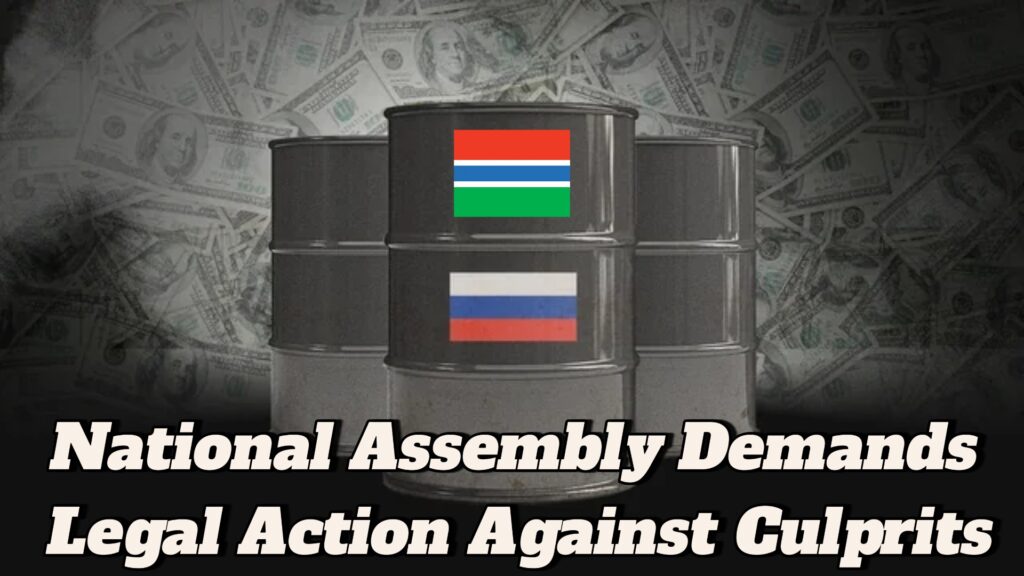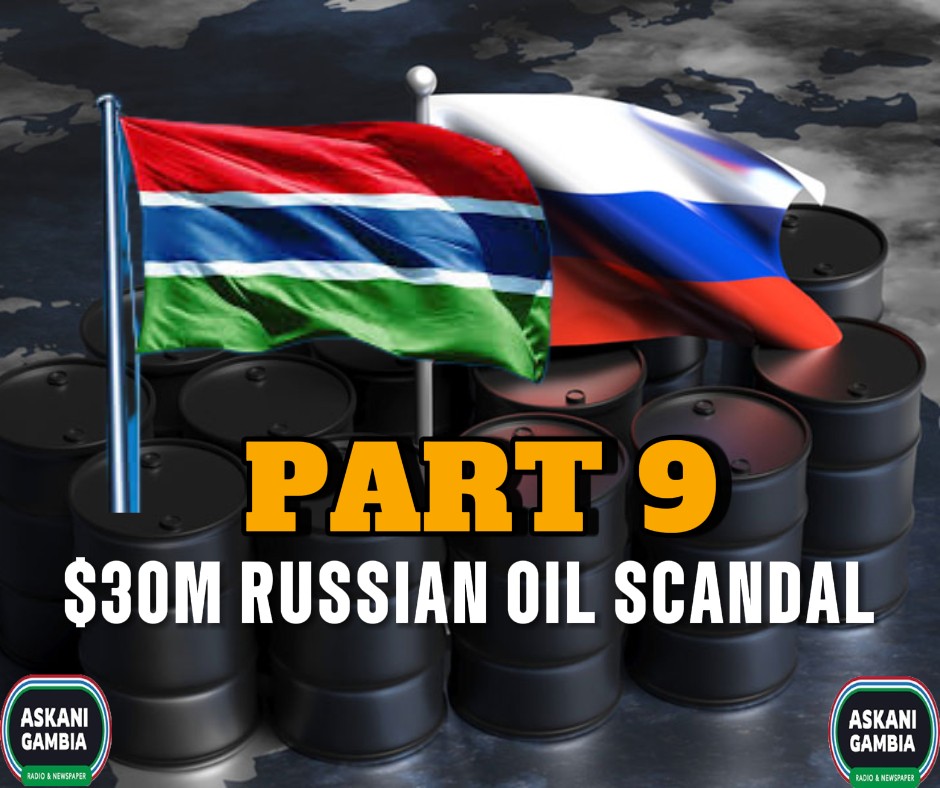
(Fuel Files Series – FPAC & PEC Petroleum Inquiry 2023 – 2025)
It is October 2025.
Fuel prices have stabilised across the Gambia for now, but the trust that evaporated with Gam Petroleum’s missing litres has not returned.
The same question echoes from Banjul to Brikama, from the Central Bank to the pump station: how did a small nation lose so much and learn so little?
A Mirror, Not Just a Scandal
The Petroleum Inquiry began as a search for accountability in one company but turned into a mirror reflecting the entire state.
It showed how corruption in The Gambia rarely arrives wearing a mask; it comes dressed as procedure, signed and stamped.
It is the comfort letter from a bank, the unsigned reconciliation sheet on a ministry desk, the regulator’s memo filed and forgotten.
FPAC and PEC didn’t just uncover lost fuel; they also uncovered lost oversight, courage, and priorities.
The Numbers Tell a Bigger Story
• $30 million in unverified petroleum transactions.
• 36,935 metric tonnes of fuel that entered the country with broken documentation.
• Three state agencies that failed to act in time.
These figures concern not only petroleum but also preview what can happen to any national resource when governance drifts.
The same weaknesses threaten agriculture subsidies, state-owned enterprises, and future climate-finance funds.
October 2025: Where We Stand
• The Government has pledged an NAO audit and a police investigation, yet neither report has reached the public.
• Access Bank’s compliance review remains confidential.
• Gam Petroleum’s management continues to operate under “interim” arrangements.
• Parliament has not yet debated a single amendment to the Petroleum Regulations.
Accountability is moving at the speed of paperwork.
The 2026 Choice
As elections approach, every dalasi lost to mismanagement becomes a campaign issue.
When a government cannot trace its own fuel, can it trace its own promises?
When agencies wait for orders instead of enforcing laws, can citizens wait for change?
The Petroleum Inquiry gave the nation evidence; what Gambians do with it now will define 2026 more than any slogan or billboard.
Rebuilding the Systems
True reform means:
- Publishing all state-owned enterprise audits within 90 days of completion.
- Digitising inter-agency data between PURA, GRA, MoPE, and the CBG.
- Making parliamentary committee reports legally binding on executive follow-up.
- Protecting whistle-blowers and auditors who expose state-capture schemes.
Without these, inquiries will keep repeating, and citizens will keep paying.
The Moral Bottom Line
The missing billions are not just in petroleum tanks; they are in the silent budgets, the ghost projects, the uncollected taxes, the unpunished failures.
The Petroleum Inquiry pulled the curtain back for a moment. We decide whether it will close again.
History rarely repeats itself; it waits for those who refuse to learn.
October 2025 should be the month we stop waiting.
By Jallow Modou, Financial Analyst, Washington D.C., USA
Fuel Files Series — Making the Petroleum Inquiry Speak for the People

